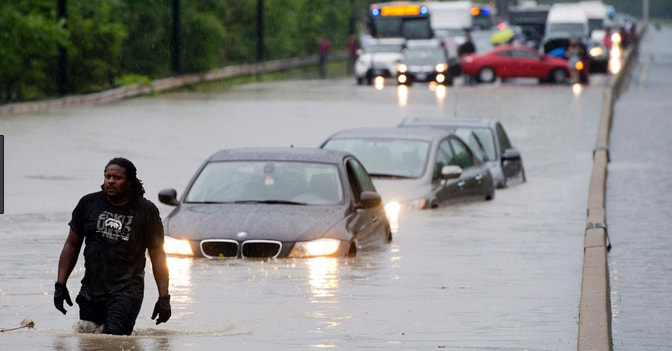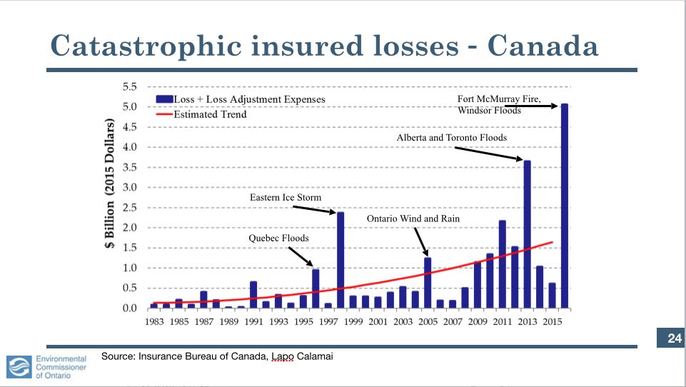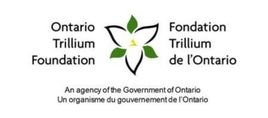The Lighthouse Project pilot is now closed. Pilot findings are available here as links to two Tamarack Institute Case Studies -- one from the pilot's midway point, and the final case study.
A recording of the final reporting to Tamarack's Community of Practice and specially invited panel of expert reviewers is available here.
To take part in ongoing conversation around these issues, consider joining Tamarack's Citizens and Emergency Preparedness Community of Practice
A recording of the final reporting to Tamarack's Community of Practice and specially invited panel of expert reviewers is available here.
To take part in ongoing conversation around these issues, consider joining Tamarack's Citizens and Emergency Preparedness Community of Practice
About the pilot
Timeline 2017 – 2018
This pilot uses community engagement strategies to promote local multi-stakeholder networks or resilience hubs. These contribute to extreme weather preparedness: before, during and after an event.
The Lighthouse Project, with pilot sites in Brampton, Hamilton and Toronto, brings together three ideas that contribute to local climate resilience:
|
One: Faith communities engage in both community service and care for the environment. As familiar landmarks in vulnerable neighbourhoods they have the facilities and networks that make them the ideal sites or catalysts for 'resilience hubs.'
|
Two: Neighbourhoods are most resilient when residents know each other, have multiple active networks, care for their vulnerable neighbours and have committed and tangible external supports.
|
Three: Every community is different; this pilot will first ask what concerns are central to each. The answers to that question will inform outreach strategies, processes and goals. Each community-led pilot will be distinct and relevant to its own needs.
|
Extreme Weather
All Canadian municipalities face increasingly frequent and severe climate events.
Documented experience from cities that have struggled through extremes of flooding, ice storms, drought and heat, shows that what’s central to making communities resilient is their social capital and social infrastructure: the local residents and workers who organize before, during and following shocks and stresses.
Documented experience from cities that have struggled through extremes of flooding, ice storms, drought and heat, shows that what’s central to making communities resilient is their social capital and social infrastructure: the local residents and workers who organize before, during and following shocks and stresses.
Extreme weather events in Ontario:
Heavy rainfall and flooding
Tornado
Heavy wind
Hail bomb
Ice storm
Extreme heat & extended heatwave
Extended drought
Extreme weather events may cause power outages that can last for days.
Heavy rainfall and flooding
Tornado
Heavy wind
Hail bomb
Ice storm
Extreme heat & extended heatwave
Extended drought
Extreme weather events may cause power outages that can last for days.
|
Emergency preparation for extreme weather hazards means that families and communities are also ready to cope with a host of other emergency scenarios. |
Which of the following is a Community Climate Resilience Hub?
1) A network of volunteers and other stakeholders?
2) An anchor site for convening meetings, workshops and parties?
3) A collection of resources for making residents and neighbourhoods safe and weather ready?
4) A place where a range of climate expertise can be found or leveraged to serve the community?
1) A network of volunteers and other stakeholders?
2) An anchor site for convening meetings, workshops and parties?
3) A collection of resources for making residents and neighbourhoods safe and weather ready?
4) A place where a range of climate expertise can be found or leveraged to serve the community?
Answer: Any or all of the above!
Project Partners & Collaborators
Faith & the Common Good, CREW, City of Brampton, Office of Emergency Management, Environment Hamilton, Halton Environmental Network, Tamarack Institute, “Deepening Community” team,
School for Social Entrepreneurs (SSE)
Evaluation Consultant: Katie Hayes is a PhD candidate at the Dalla Lana School of Public Health.
Faith & the Common Good, CREW, City of Brampton, Office of Emergency Management, Environment Hamilton, Halton Environmental Network, Tamarack Institute, “Deepening Community” team,
School for Social Entrepreneurs (SSE)
Evaluation Consultant: Katie Hayes is a PhD candidate at the Dalla Lana School of Public Health.
Faith & the Common Good (FCG) is a national, interfaith network (charity registration # 82827 6121 RR0001) founded in 2000 on the belief that our diverse faith congregations and spiritual communities can be powerful role models for the common good. Our network is composed of people of faith, hope, and spirit who, despite our differences in theology, dress and culture, share a calling to protect our ecosystem and a passion for community service.
On average each year, we work with close to 800 faith communities, from 20 different spiritual traditions, to host hundreds of green events and activities that reach more than 10,000 Canadians. With 1 of 3 Canadians attending worship regularly, we believe that galvanizing faith groups to be neighbourhood sustainability role models is crucial for a greener, healthier, more resilient Canada.
On average each year, we work with close to 800 faith communities, from 20 different spiritual traditions, to host hundreds of green events and activities that reach more than 10,000 Canadians. With 1 of 3 Canadians attending worship regularly, we believe that galvanizing faith groups to be neighbourhood sustainability role models is crucial for a greener, healthier, more resilient Canada.






